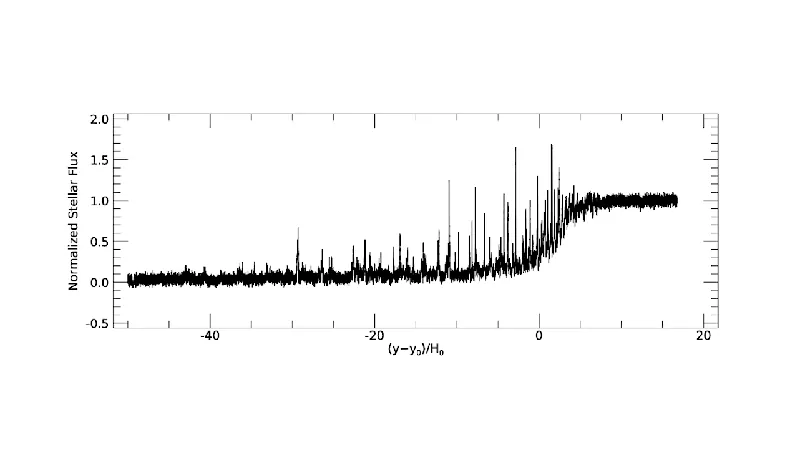
Plankton Modeling: A Call to Action for Climate Scientists
2025-07-02
Author: William
Revolutionizing Plankton Modeling for a Healthier Planet
In a bold new study, researchers are sounding the alarm for a dramatic overhaul in how we model plankton, organisms vital to our planet's health and climate stability. Led by Professor Kevin Flynn from the Plymouth Marine Laboratory and featuring contributions from the University of Exeter, the paper highlights that current modeling techniques are dangerously outdated and fail to capture the complexity of these microscopic powerhouses.
Why Plankton Matter More Than You Think
Plankton fuel the ocean's food chain, serving as the foundation for all marine life, from tiny fish to massive whales. Without them, marine ecosystems would collapse. Professor Flynn emphasizes: "No plankton—no fish, no sharks, no whales, no seals, no coral, etc." Yet the models used to represent these organisms often simplify their diversity to just a handful of categories, which can lead to catastrophic misunderstandings.
A Call for Modernization
The researchers advocate for a major rethinking of plankton modeling, urging that these tools reflect contemporary knowledge of plankton physiology and their ecological roles. Professor Flynn states, "We're using tools built on concepts that are 30 to 50 years old to understand rapidly changing ecosystems. This is not just a scientific lapse; it's a societal risk that could affect policy-making and environmental management."
Dangerous Outcomes of Outdated Models
Relying on oversimplified models may yield seemingly correct findings for the wrong reasons, creating false confidence in our ability to predict future changes in marine ecosystems. The paper warns of serious consequences, such as underestimating shifts in biodiversity and overlooking critical drivers of marine productivity and carbon cycling.
Proposed Solutions for a Brighter Future
To tackle these urgent challenges, the researchers propose a series of transformative recommendations, including: 1. Enhanced collaboration between empirical scientists and modelers during model development. 2. A better understanding of real-world ecological complexities in model design. 3. Development of new tools allowing non-technical scientists to engage in modeling. 4. Investment in "digital twin" platforms for realistic simulations that can guide informed decision-making under global change.
Joining Forces for Oceanic Health
Professor Daniel Mayor from the University of Exeter adds that while there are successful examples of collaboration between modelers and biologists, many projects still suffer from isolation. To combat this inefficiency, he champions the idea that combining hands-on biological knowledge with advanced modeling techniques can facilitate more effective models.
Towards a New Era in Plankton Research
Emerging from this research is a vision of developing user-friendly models to better inform scientists and decision-makers about potential marine futures. The study argues that modeling should be treated as a fundamental tool in plankton ecology, just as molecular biology transformed scientific understanding in the late 20th century. Without modern modeling techniques, our ability to project the future of ocean ecosystems may remain shackled by yesterday's science.









 Brasil (PT)
Brasil (PT)
 Canada (EN)
Canada (EN)
 Chile (ES)
Chile (ES)
 Česko (CS)
Česko (CS)
 대한민국 (KO)
대한민국 (KO)
 España (ES)
España (ES)
 France (FR)
France (FR)
 Hong Kong (EN)
Hong Kong (EN)
 Italia (IT)
Italia (IT)
 日本 (JA)
日本 (JA)
 Magyarország (HU)
Magyarország (HU)
 Norge (NO)
Norge (NO)
 Polska (PL)
Polska (PL)
 Schweiz (DE)
Schweiz (DE)
 Singapore (EN)
Singapore (EN)
 Sverige (SV)
Sverige (SV)
 Suomi (FI)
Suomi (FI)
 Türkiye (TR)
Türkiye (TR)
 الإمارات العربية المتحدة (AR)
الإمارات العربية المتحدة (AR)